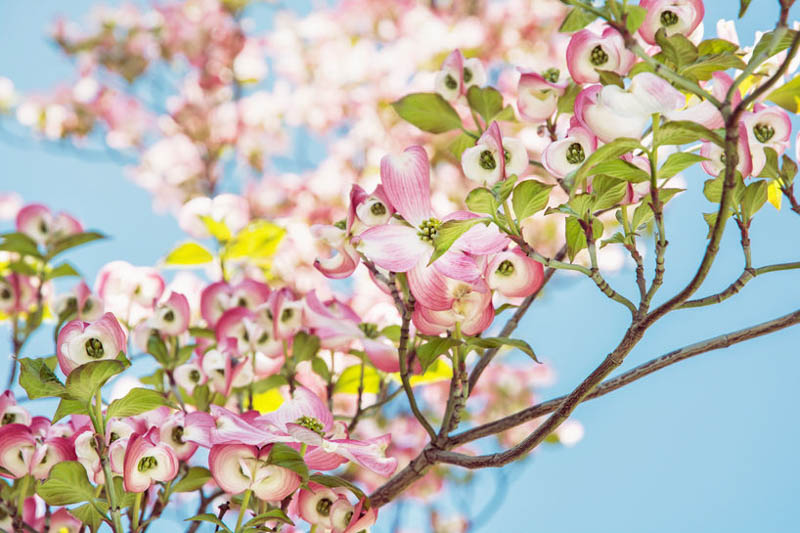Dogwood
The Dogwood (Cornus) is a versatile plant that exists in various forms, ranging from small shrubs to medium-sized trees. This adaptability makes it a popular choice among gardeners and landscape designers.
Habit: Depending on the species, Dogwoods can grow as multi-stemmed shrubs or as trees with a single main trunk. Their growth habit is generally upright but varies from species to species. Some have a rounded canopy, while others display tiered branches. They are best known for their stunning seasonal displays that include blossoms, fruits, and colorful foliage.
Hardiness: Dogwood plants are generally hardy, suitable for USDA zones 2-10 depending on the species. The native Cornus Florida (Flowering Dogwood) is hardy in zones 5-9, while the Cornus nuttallii (Pacific Dogwood) is less cold-hardy and suited for zones 7-9. They prefer well-drained, acidic to neutral soils and can adapt to various lighting conditions, although partial shade is usually best.
Flowers and Bloom Time: One of the most captivating features of the Dogwood is its flowers, which bloom in spring or early summer. While people commonly think the large white or pink “petals” are the flowers, these are actually modified leaves called bracts that surround the actual tiny, clustered flowers at the center. This unique floral display is what makes the Dogwood stand out.
Uses: These shrubs and trees are popular in residential and public landscapes, often used as specimen trees or in mixed borders. Some species are used for erosion control. The Cornelian Cherry Dogwood (Cornus mas) even produces edible fruit, which is used in jams and syrups.
Benefits: Beyond their aesthetic appeal, Dogwoods offer ecological benefits as well. The berries produced by most species are a valuable food source for wildlife. Their flowers are also pollinator-friendly, attracting a variety of bees and butterflies. Moreover, Dogwoods can also be used in a woodland garden to provide understory habitat.
By offering a captivating display of flowers, vibrant foliage, and year-round interest, the Dogwood serves both functional and aesthetic purposes in any garden setting.

